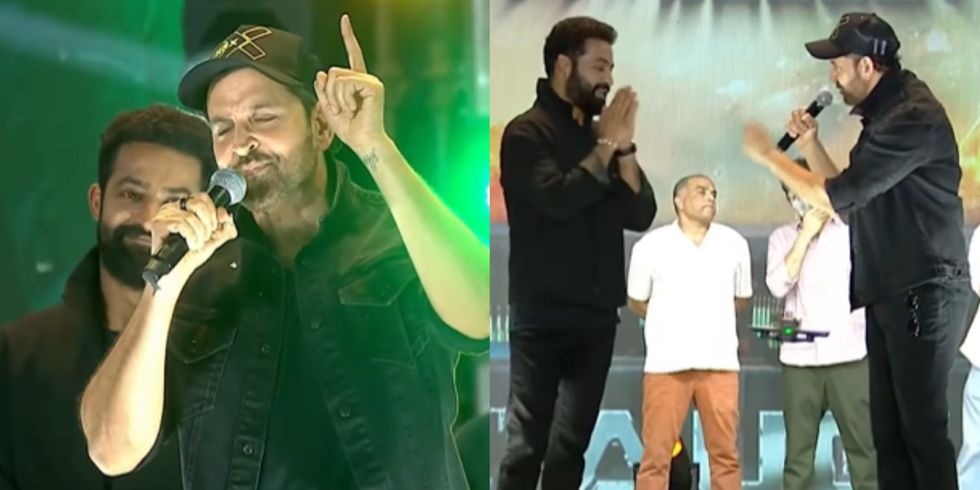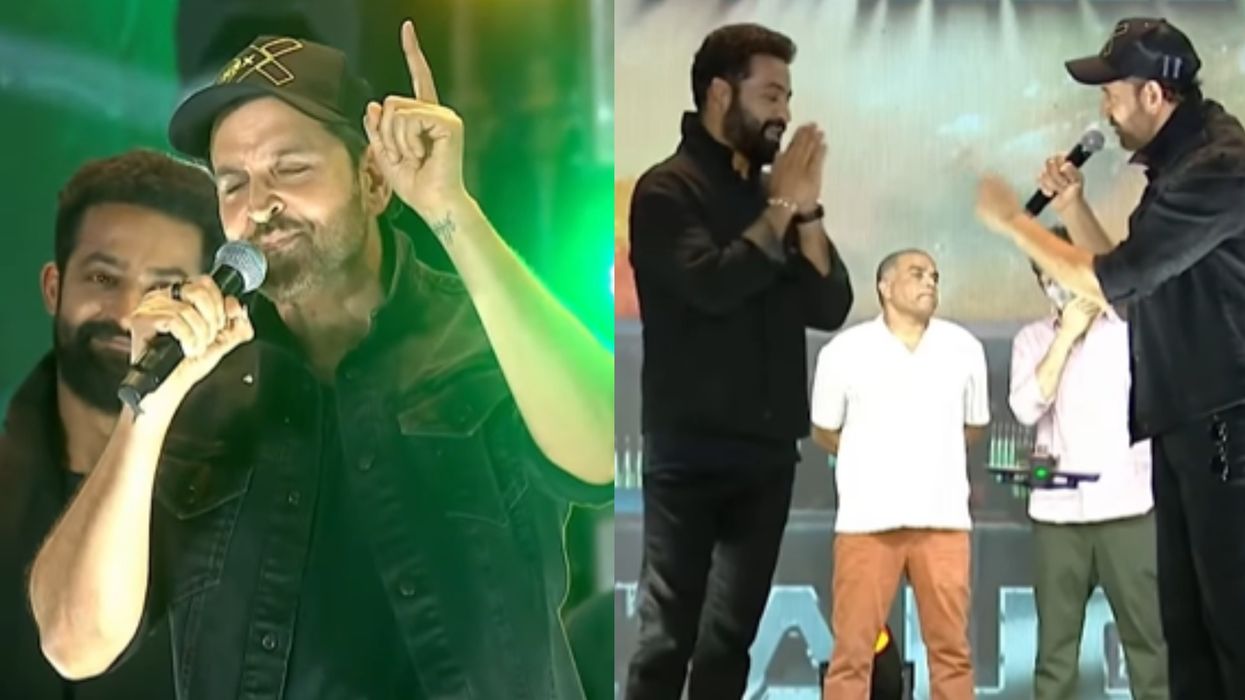Highlights
• Hrithik Roshan praises Jr NTR’s precision, calling him a “one-take final-take star” at the War 2 pre-release event.
• Jr NTR returns the compliment, calling Hrithik “India’s best dancer” and recalling being awed by Kaho Naa... Pyaar Hai.
• Directed by Ayan Mukerji, War 2 releases on 14 August and features Kiara Advani in a pivotal role.
• The film is part of Yash Raj Films’ Spy Universe and will clash with Rajinikanth’s Coolie at the box office.
Hyderabad turned into a hub of excitement on Sunday, 10 August, as the makers of War 2 hosted their only pre-release event just days before the film’s release. Fans, especially those of Jr NTR, packed the venue to witness his first public appearance with co-star Hrithik Roshan ahead of his Bollywood debut.
Taking the stage, Hrithik showered praise on the RRR star, calling him a “one-take final-take” performer. “Tarak, I have not just observed you, I have learnt from you,” Hrithik said. “We have had very similar journeys for 25 years, and I think Tarak sees a little bit of himself in me too. It is true when they say he is a one-take final-take star.”

The Krrish actor went on to reveal the biggest takeaway from working with Jr NTR , giving 100% to every shot. “Not 99.99%, not 99.999%, but 100%. He will not even check the monitor because he knows he has given everything. I will carry this lesson into my future films. Tarak, thank you for teaching me that,” he said.

Jr NTR calls Hrithik Roshan ‘India’s best dancer’
The admiration was mutual. Jr NTR recalled watching Hrithik’s debut film Kaho Naa... Pyaar Hai in a Hyderabad theatre and being stunned by his dance moves. “Since then, I have been a huge fan of Hrithik sir. Everyone says I am a good dancer, but I truly believe Hrithik sir is India’s best dancer,” the Telugu superstar said.
He also expressed confidence that Telugu audiences would embrace Hrithik as warmly as Hindi audiences would welcome him. “Each and every fan of mine will take you to their hearts. Your responsibility is ours,” Jr NTR assured.
What to expect from War 2
Directed by Ayan Mukerji, War 2 continues Yash Raj Films’ expanding Spy Universe, following Ek Tha Tiger (2012), Tiger Zinda Hai (2017), War (2019), Pathaan (2023), and Tiger 3 (2023). Hrithik reprises his role as RAW agent Kabir Dhaliwal, while Jr NTR plays the primary antagonist. Kiara Advani joins the cast as an army officer and Kabir’s love interest.
The film is set for a major release on 14 August, coinciding with the Independence Day holiday weekend. Early box office tracking from Sacnilk suggests strong anticipation, with pre-sales already crossing £193,000 (₹2.09 crore) domestically.
Box office clash with Rajinikanth’s Coolie
Adding to the buzz is the fact that War 2 will open alongside Rajinikanth’s Coolie, creating one of the biggest box office clashes of the year. Trade experts expect both films to draw massive crowds over the holiday weekend, with audiences split between the two megastar-led projects.
- YouTube youtu.be
Given its star power, high-octane action sequences, and its place within the YRF Spy Universe, War 2 is already being positioned as a major crowd-puller in both the Hindi and Telugu markets. The Hyderabad event’s energetic atmosphere only reinforced the anticipation surrounding the film.





